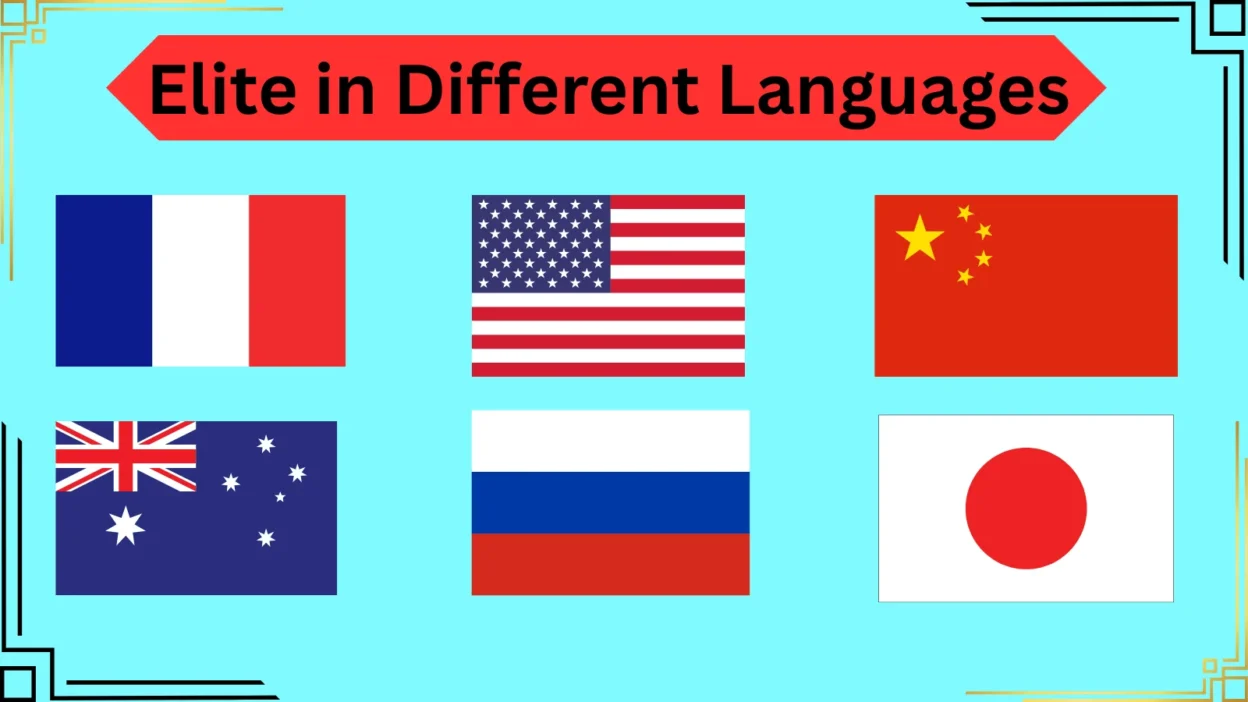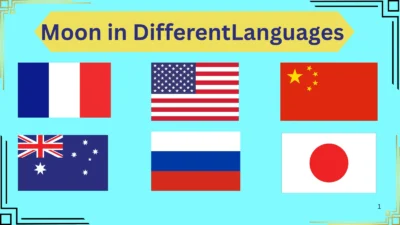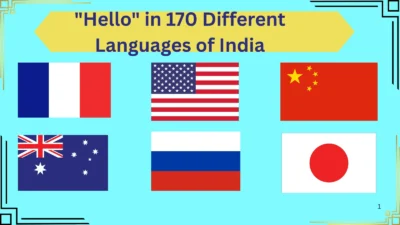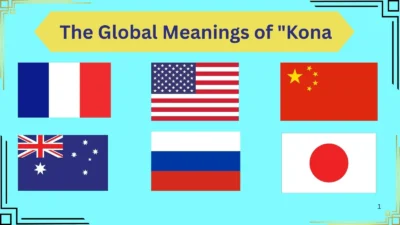The word “elite” carries power, prestige, and a sense of excellence. Whether we’re talking about top athletes, high-ranking officials, or influential thinkers, the term “elite” describes individuals or groups that stand out from the rest.
But have you ever wondered how this important word translates across different languages and cultures?
People search for “elite in different languages” to better understand how excellence and high status are described globally.
This could be for travel, cross-cultural writing, learning a new language, or simply to connect more meaningfully with others around the world.
In this article, we’ll explore how different languages express the concept of “elite,” what it means in each cultural context, and how to use the word correctly when speaking or writing.
Whether you’re a language lover, a student, or just curious, this guide will give you practical insights into one powerful word that transcends borders.
Let’s dive into the world of elite—in every language.
🔍 Why search for “elite in different languages”?
- To communicate effectively in multicultural settings
- To understand social hierarchies in various countries
- For academic, business, or creative writing purposes
Elite in European Languages
Western Europe
- English – Elite
- “The tech elite dominates Silicon Valley.”
- French – Élite
- “L’élite politique” (Political elite)
- Spanish – Élite
- “La élite cultural” (Cultural elite)
- Portuguese – Elite
- “A elite acadêmica” (Academic elite)
- Italian – Elite
- “L’élite sportiva” (Sports elite)
- German – Elite
- “Die Wirtschaftselite” (Economic elite)
- Dutch – Elite
- “De artistieke elite” (Artistic elite)
- Swedish – Elit
- “Den militära eliten” (Military elite)
- Norwegian – Elite
- “Forretningseliten” (Business elite)
- Danish – Elite
- “Den akademiske elite” (Academic elite)
Eastern Europe
- Russian – Элита (Elita)
- “Спортивная элита” (Sports elite)
- Polish – Elita
- “Elita finansowa” (Financial elite)
- Czech – Elita
- “Vědecká elita” (Scientific elite)
- Hungarian – Elite
- “A politikai elite” (Political elite)
- Romanian – Elite
- “Elita socială” (Social elite)
Elite in Asian Languages
East Asia
- Mandarin Chinese – 精英 (Jīngyīng)
- “商业精英” (Business elite)
- Japanese – エリート (Erīto)
- “エリート意識” (Elitist mindset)
- Korean – 엘리트 (Elliteu)
- “엘리트 교육” (Elite education)
South Asia
- Hindi – अभिजात वर्ग (Abhijāt Varg)
- “सांस्कृतिक अभिजात वर्ग” (Cultural elite)
- Bengali – অভিজাত (Abhijāt)
- “অভিজাত সমাজ” (Elite society)
- Tamil – உயர் வர்க்கம் (Uyar Vargam)
- “கலாச்சார உயர் வர்க்கம்” (Cultural elite)
Southeast Asia
- Thai – ชนชั้นสูง (Chon Chán Sŭng)
- “ชนชั้นสูงทางปัญญา” (Intellectual elite)
- Vietnamese – Tinh hoa
- “Giới tinh hoa” (Elite circle)
- Indonesian – Elite
- “Elite politik” (Political elite)
Elite in Middle Eastern & African Languages
Middle East
- Arabic – النخبة (Al-Nokhba)
- “النخبة الفنية” (Artistic elite)
- Persian (Farsi) – نخبه (Nokhbe)
- “نخبگان علمی” (Scientific elite)
- Turkish – Elit
- “Sanat elitleri” (Art elites)
Africa
- Swahili – Elite
- “Elite ya kisiasa” (Political elite)
- Amharic – ኤሊት (Elīt)
- “የቢዝነስ ኤሊት” (Business elite)
- Zulu – I-elite
- “I-elite yezemfundo” (Academic elite)
Elite in Other Global Languages
- Hebrew – אליטה (Elita)
- Greek – Ελίτ (Elít)
- Finnish – Eliitti
- Icelandic – Elite
- Croatian – Elita
- Serbian – Елита (Elita)
- Slovak – Elita
- Bulgarian – Елит (Elit)
- Ukrainian – Еліта (Elita)
- Lithuanian – Elitas
- Latvian – Elite
- Estonian – Eliit
- Maltese – Elite
- Albanian – Elite
- Georgian – ელიტა (Elita)
- Armenian – Էլիտա (Elita)
- Azerbaijani – Elit
- Kazakh – Элита (Elita)
- Uzbek – Elita
- Kyrgyz – Элита (Elita)
- Turkmen – Elita
- Tajik – Элита (Elita)
- Mongolian – Элит (Elit)
- Nepali – अभिजात (Abhijāt)
- Sinhala – එලයිට් (Elayit)
- Malayalam – എലൈറ്റ് (Elait)
- Telugu – ఎలైట్ (Elaiṭ)
- Kannada – ಎಲೈಟ್ (Elaiṭ)
- Marathi – अभिजात (Abhijāt)
- Gujarati – અભિજાત (Abhijāt)
- Punjabi – ਐਲਿਟ (Ailiṭ)
- Urdu – اشرافیہ (Ashrafiya)
- Pashto – نخبه (Nakhba)
- Kurdish – Elît
- Sindhi – ايلٽ (Elite)
- Balochi – نخبه (Nakhba)
- Bhojpuri – अभिजात (Abhijāt)
- Maithili – अभिजात (Abhijāt)
- Odia – ଏଲିଟ୍ (Eliṭ)
- Assamese – অভিজাত (Abhijāt)
Cultural Insights & Usage Tips
Positive vs. Negative Connotations
- Positive: Associated with excellence (e.g., “scientific elite” in Russian)
- Negative: Linked to snobbery (e.g., “elitist” in English)
Formal vs. Informal Contexts
- Formal: Use precise terms like “अभिजात वर्ग” (Hindi) in academic writing
- Informal: Loanwords like “エリート” (Japanese) work in casual chats
Pronunciation Help
- Listen to native speakers on Google Translate or Forvo
- For tonal languages (e.g., Mandarin), practice pitch differences
Final Thought
From Paris to Tokyo, the concept of “elite” unites and divides societies—but always signifies distinction. 🌍✨



